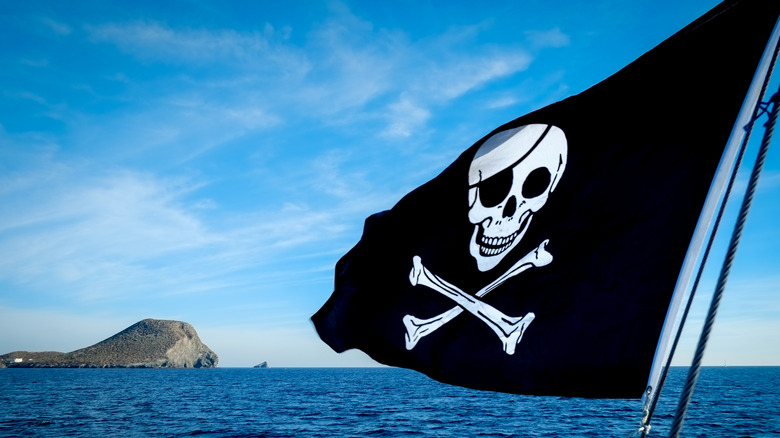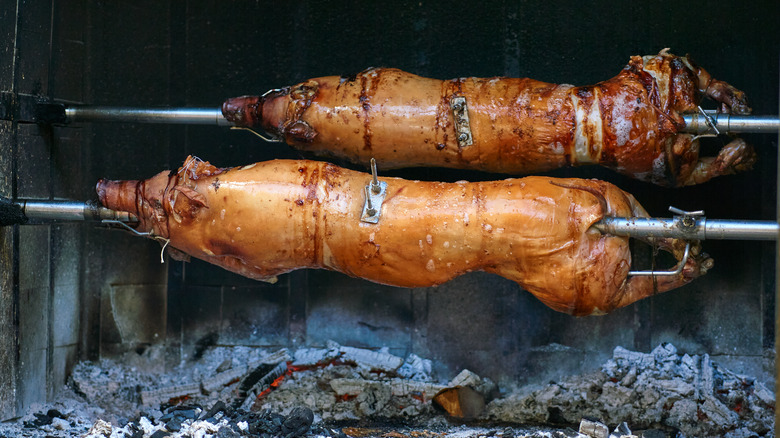The Unexpected Food Origin Of The Pirate Term 'Buccaneer'
Any pirate fan worth their (sea) salt knows these swashbuckling sailors went by many names. Pirates, privateers, corsairs, buccaneers, and even the word filibuster — now most commonly associated with gridlock politics in the U.S.– derived from a Spanish term for a thieving pirate (per Encyclopedia Britannica). But did you know that while that infamous political term originated in piracy, another well-known pirate moniker actually has its origins in the food world?
It's true! According to The Saturday Evening Post, when Europeans arrived in the Caribbean and South America, they learned how the native people slow-roasted seasoned meat over open fires to cook it in a sort of precursor to the backyard grill. According to CNN, the process involved pounding four forked stakes into the ground and creating a frame with cross-pieces. Then, they would make a grill with smaller sticks on the frame and lay hot coals from a separate fire beneath it to slow cook meat rubbed in spices and citrus juice. The Spanish called this process and the resulting grilled meat "barbacoa," which eventually translated to English as "barbecue." However, the French used the term "boucan" for the roasted meat and dubbed the people who cooked it "boucaniers" or buccaneers, as it is more modernly spelled.
From cooks to captains
So how did buccaneers go from a word for Caribbean-style cooks to a common term for people who pillage, plunder, rifle, and loot? Simply put, the cooks decided the pirate life was for them.
According to National Geographic, sailors in the age of piracy were sustained on a diet of simple, hard bread, rum, beer, ale, and dried, roasted meats. When they came ashore, they would need to resupply and take advantage of the ability to acquire fresh food, including eggs, fruit, and better meat and water (per Pirate Ship Vallarta). As CNN notes, many people who ended up stranded in the Caribbean — including shipwrecked sailors, naval deserters, and escaped slaves — would make a living by becoming hunters and boucaniers selling roasted and dried meats and animal hides to naval ships when they stopped at local ports like Tortuga.
After a while, many of these aspiring chefs realized the ships they were selling to were trading vessels and Spanish treasure ships. They decided that sailing out and raiding them was more profitable than selling barbecue. It wasn't long before the friendly Caribbean boucaniers became the fearsome buccaneers we continue to hear and learn about.

